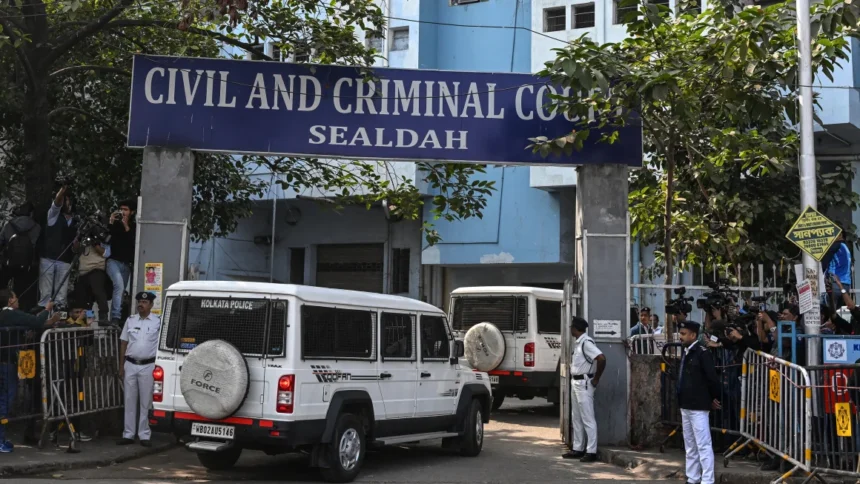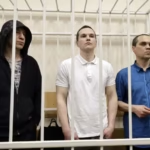A high-profile criminal case that shook India last year has reached a critical juncture as a Kolkata court found police volunteer Sanjay Roy guilty of the brutal rape and murder of a trainee doctor. The victim’s body, discovered in a classroom at R G Kar Medical College and Hospital in August, ignited protests across the country, highlighting ongoing concerns about sexual violence and safety for women.
Verdict and Sentencing
The Civil and Criminal Court in Sealdah, presided over by Judge Anirban Das, convicted the 33-year-old accused based on circumstantial evidence. Roy, who has continuously maintained his innocence, now awaits sentencing, with the possibility of facing either life imprisonment or the death penalty. The sentencing hearing is scheduled for Monday.
“You are being convicted,” the judge declared, as he pronounced Roy guilty. Despite the ruling, the defense maintains that the investigation was flawed and forensic evidence inconsistent.
Questions Surrounding the Investigation
The victim’s grieving parents have voiced their dissatisfaction with the probe, believing that more individuals were involved in the horrific crime. “Our daughter could not have met such a horrific end by a single man,” the victim’s father stated, adding that their fight for justice will continue until all responsible parties are punished.
Roy’s defense team has yet to issue an official response to the verdict but had previously pointed to alleged discrepancies in the forensic reports. The trial, which commenced on November 11, saw testimony from 51 witnesses, yet the lingering doubts over the true circumstances of the crime remain a point of contention.
Public Outcry and Protest Movements
The severity of the case triggered a massive public response, with nationwide demonstrations demanding justice. As Roy was transported to court, protesters lined the streets, chanting: “Hang him, hang him.” Security forces were deployed in large numbers to manage the tense situation outside the courthouse.
Doctors and medical professionals have also rallied in solidarity, demanding enhanced security at government hospitals. Dr. Aniket Mahato, a spokesperson for junior doctors, vowed that protests would persist “until justice is done.”
The case has drawn parallels to India’s infamous 2012 Delhi gang rape and murder case, which led to sweeping legal reforms. The tragic killing of the young trainee doctor has reignited calls for stronger protective measures for women, particularly in public institutions.
Institutional Failures and Further Arrests
Adding to the controversy, India’s federal police charged the local police station’s former chief and the ex-head of R G Kar Medical College with tampering with evidence and destroying crucial crime scene details. The officer is currently out on bail, while the former hospital director remains in custody for a separate case involving financial mismanagement.
In response to the case and the subsequent protests, India’s Supreme Court formed a national task force to recommend improved security measures at government hospitals, aiming to prevent similar tragedies in the future.
A Nation Awaits Justice
As the court prepares to deliver Roy’s sentence, the case remains a sobering reminder of India’s ongoing struggle with gender-based violence. The victim’s family, protestors, and rights groups continue to demand accountability, vowing that justice will only be served when all individuals involved in the crime face consequences. The country watches closely, hoping for a verdict that sends a strong message against crimes targeting women.














I don’t think the title of your article matches the content lol. Just kidding, mainly because I had some doubts after reading the article.